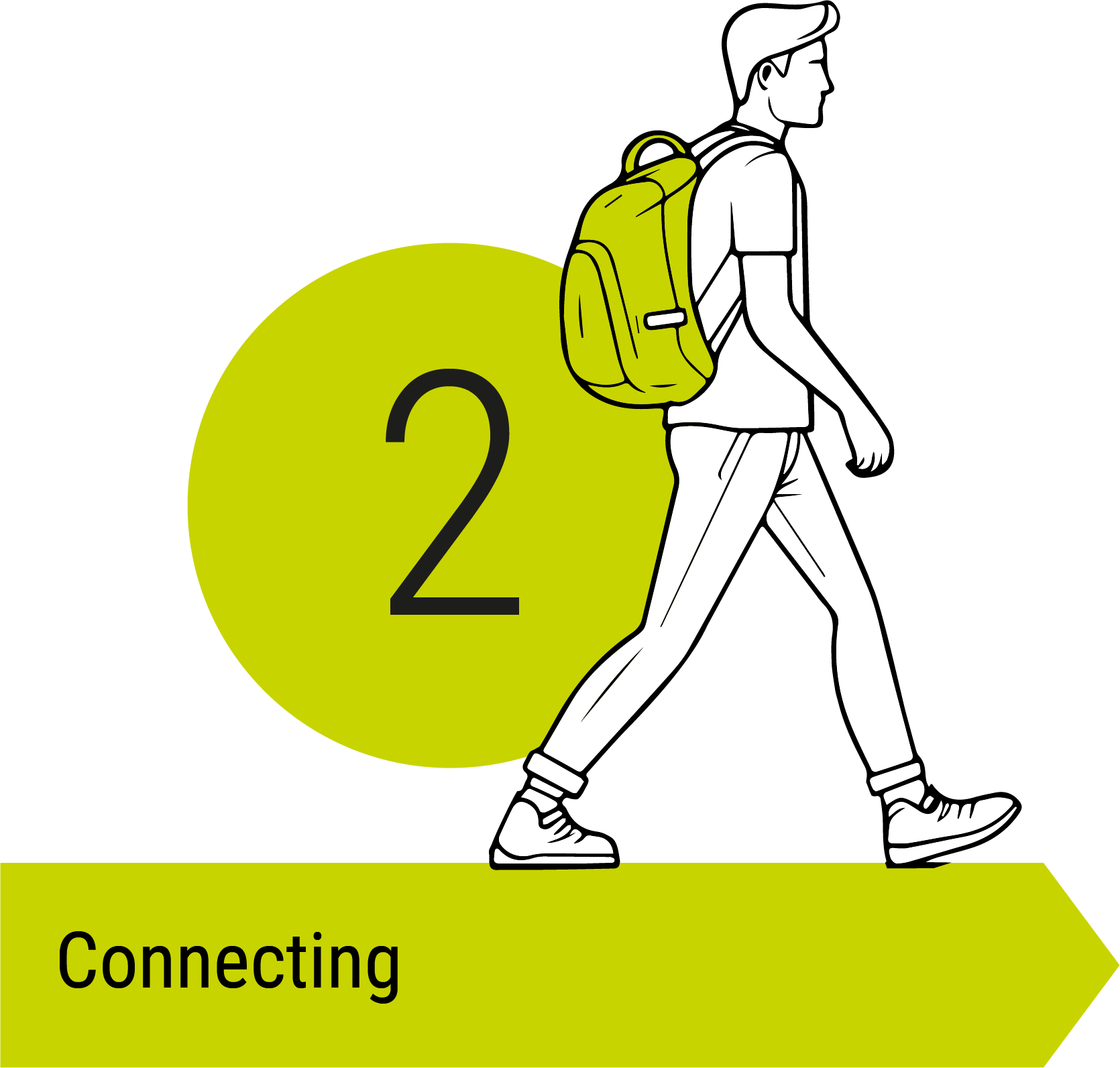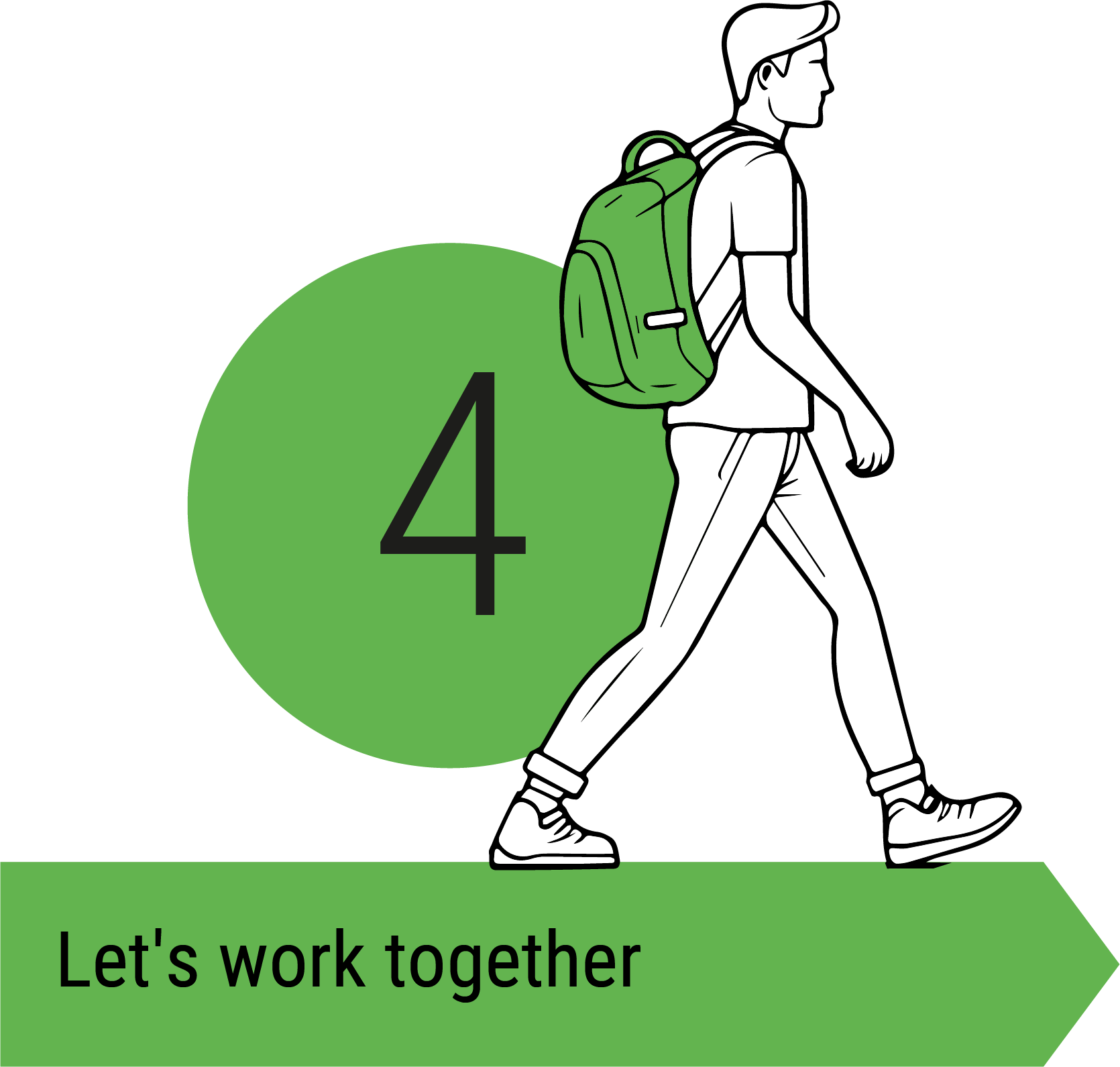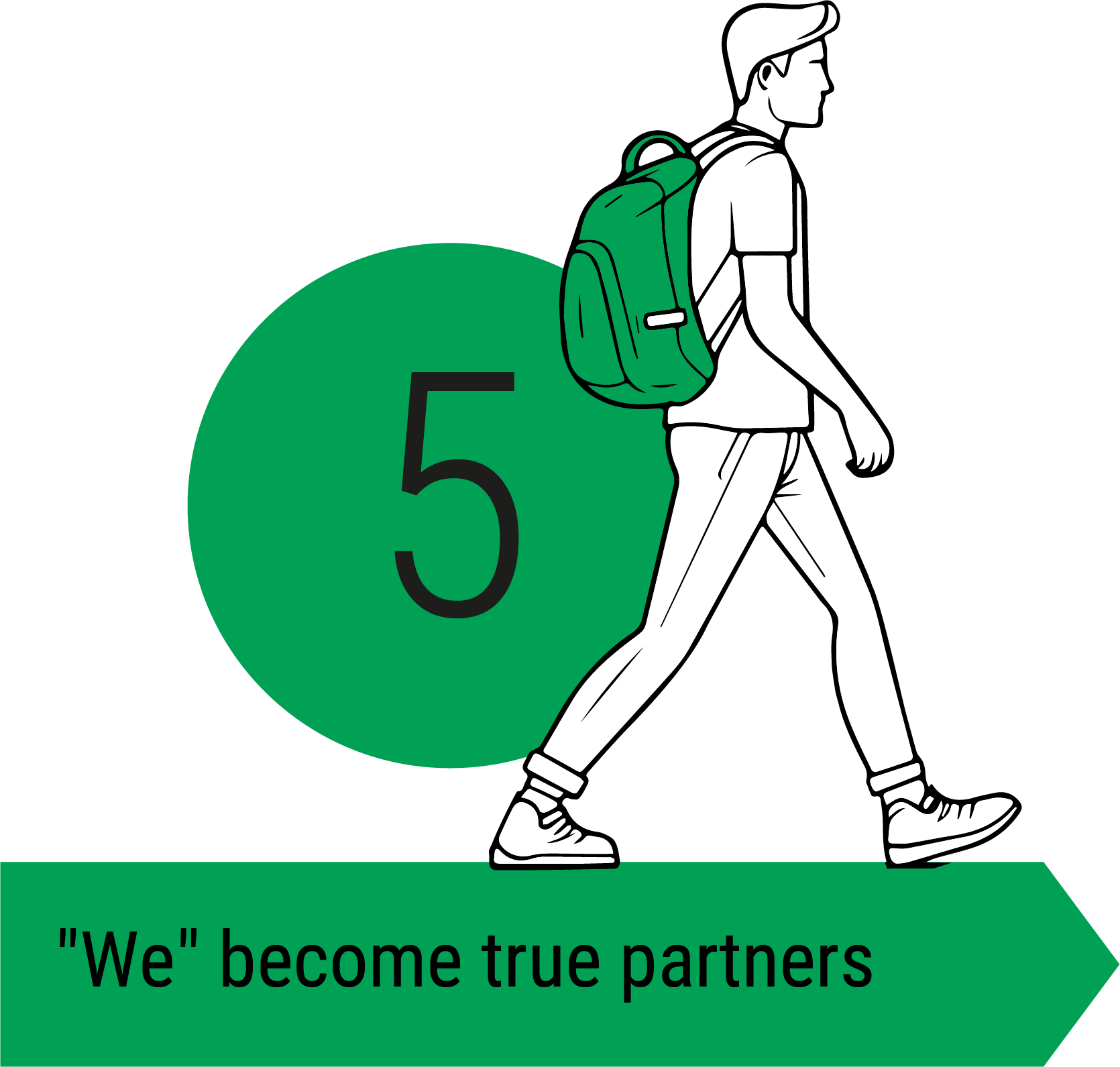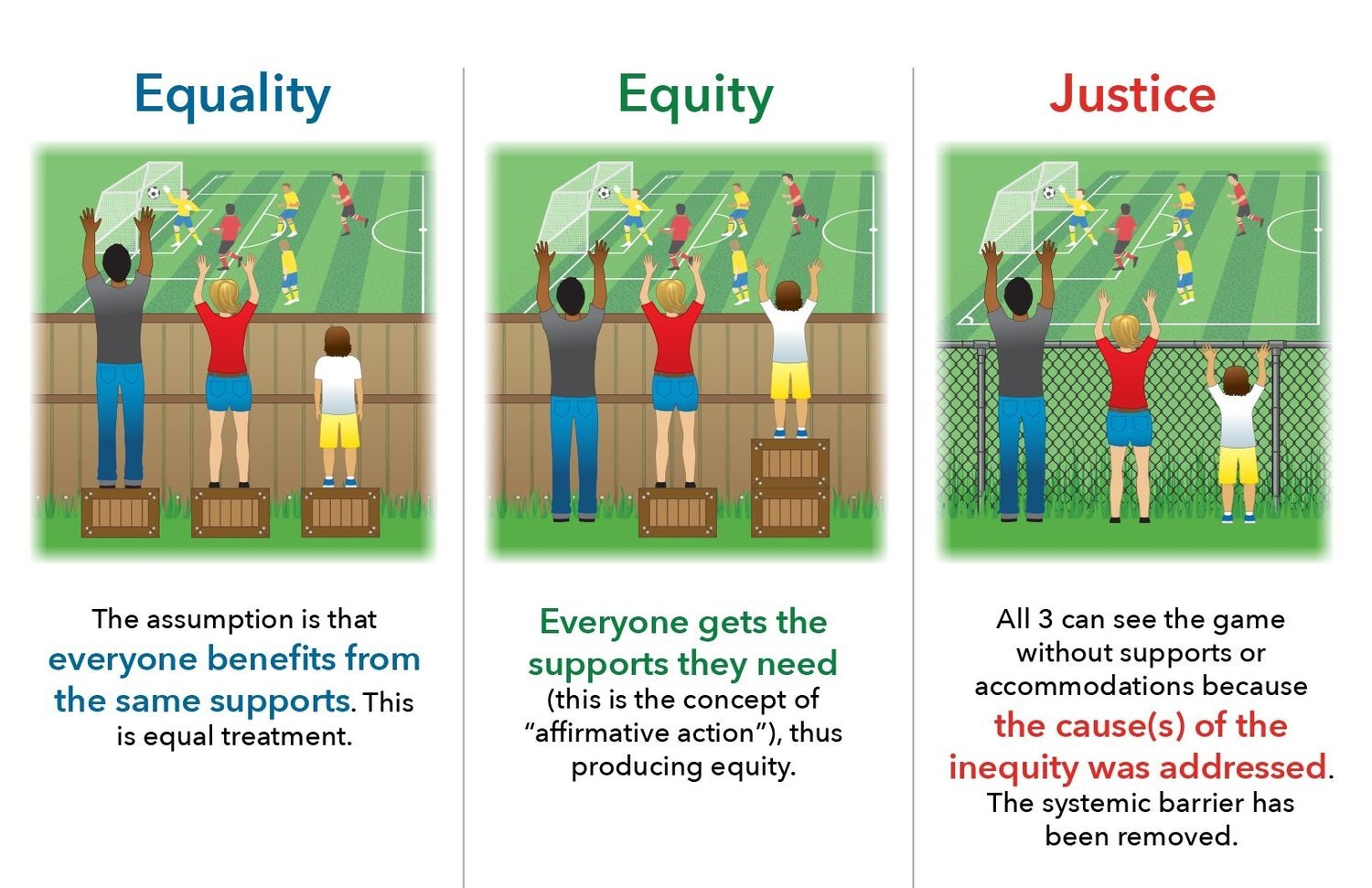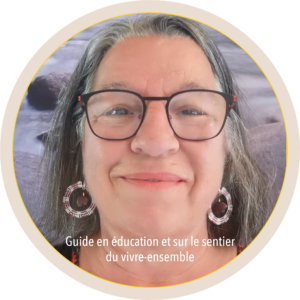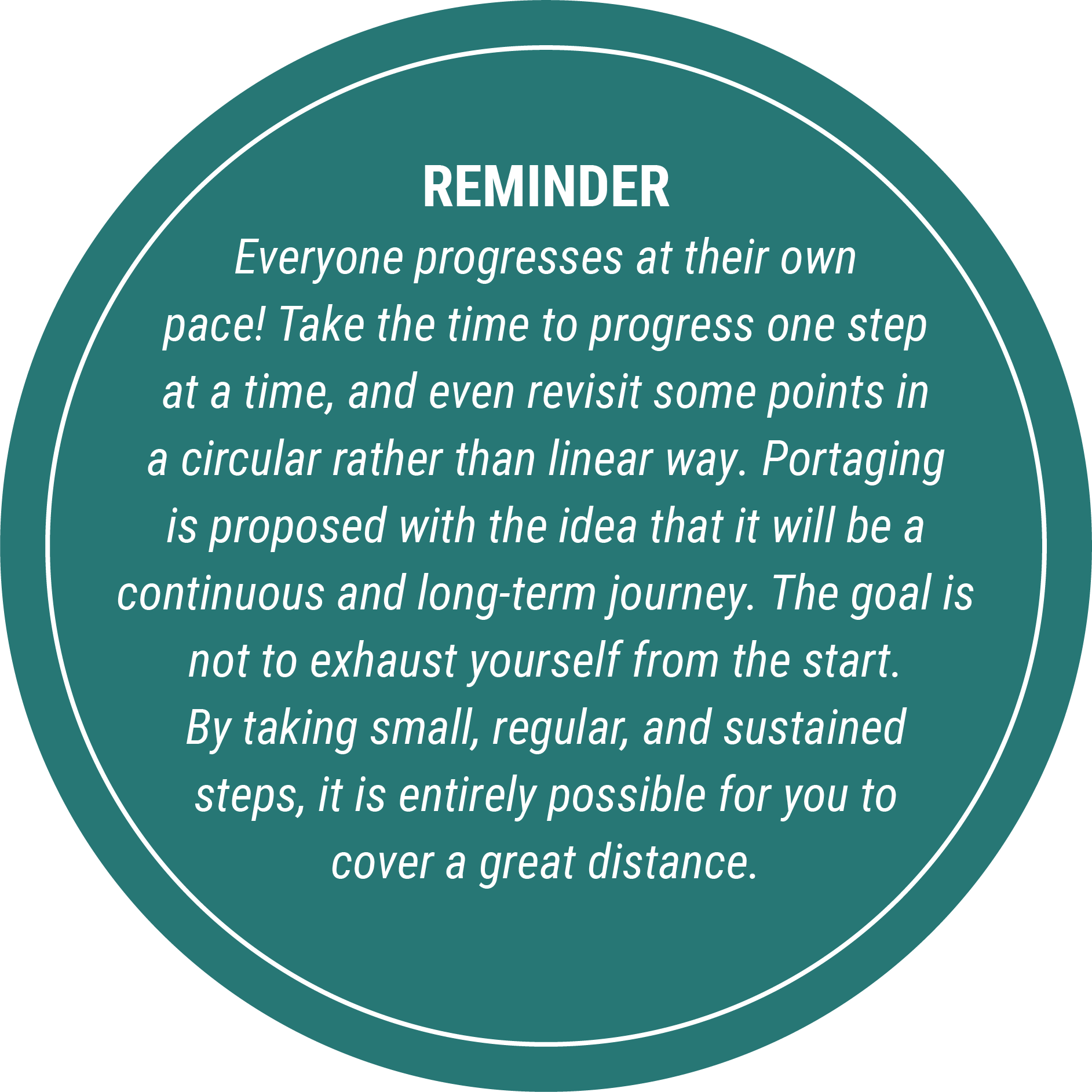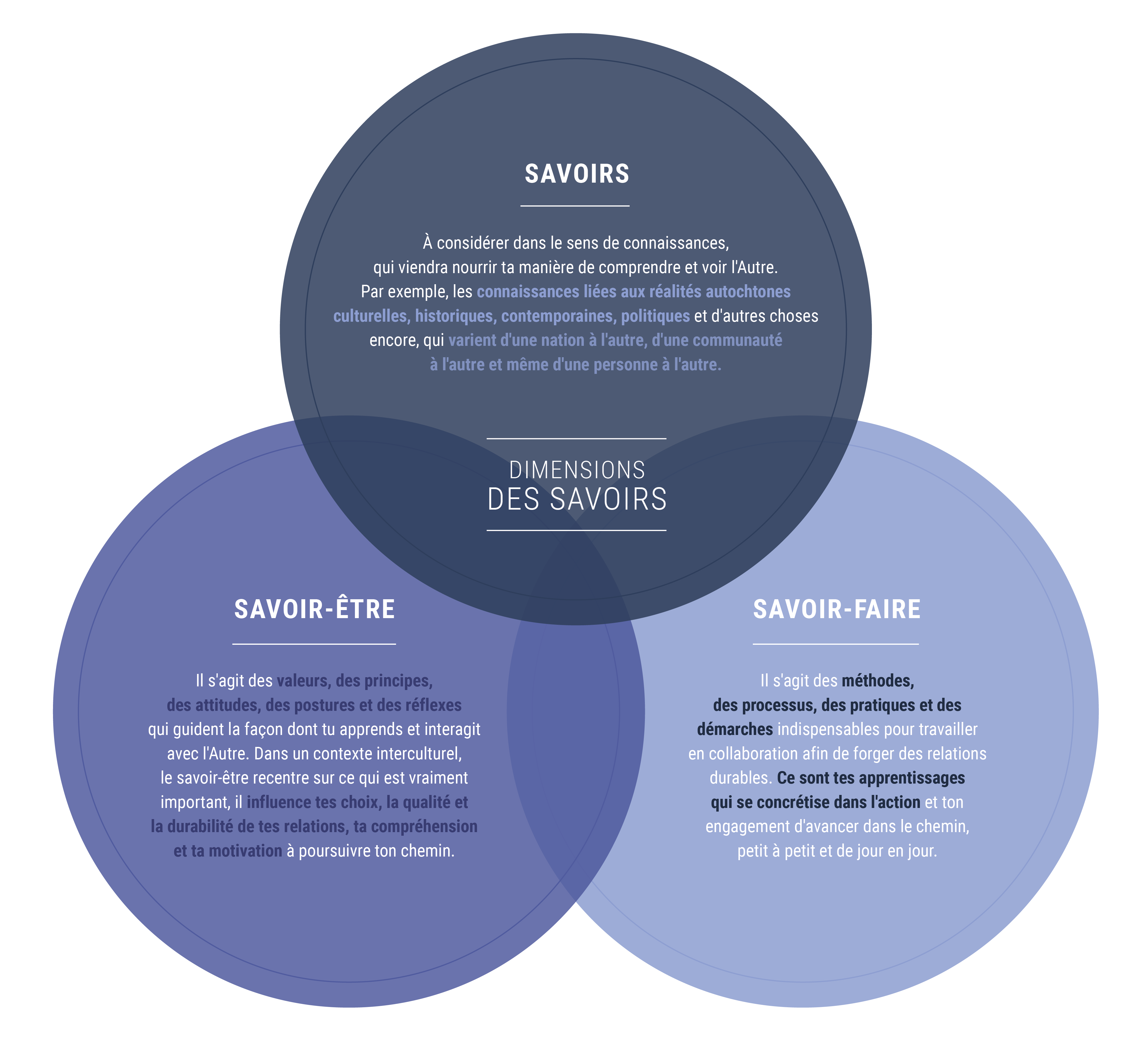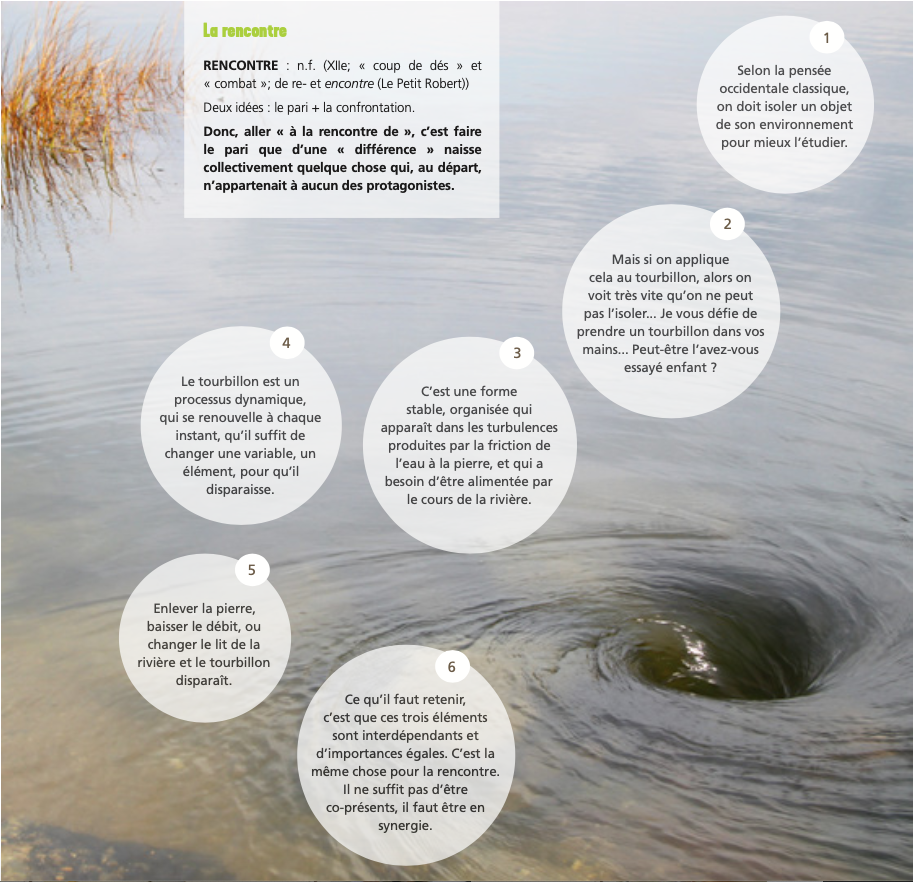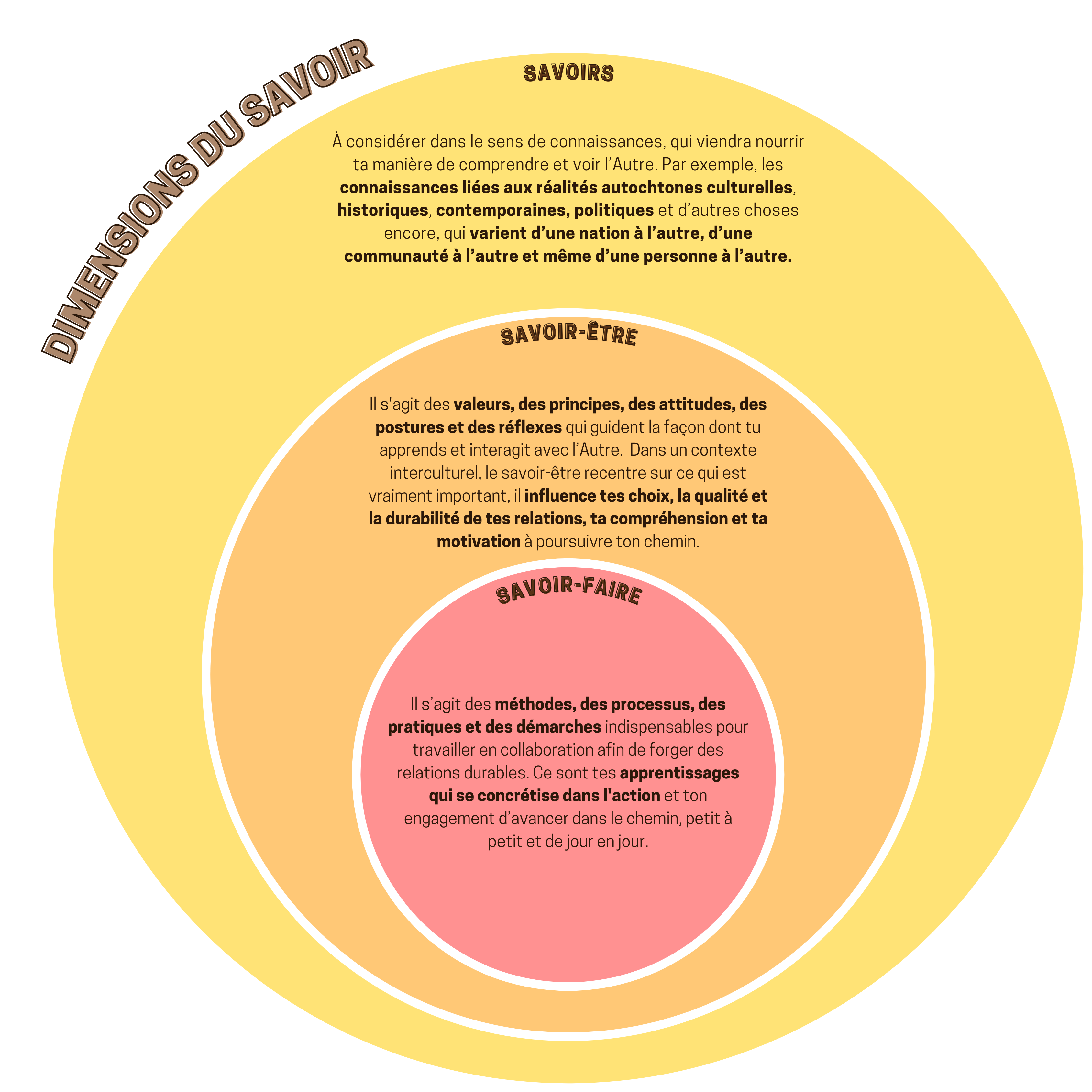PORTAGE
Ready to go?
Are you going alone or are we going together? Do we not know each other or know each other very little? Have we never portaged together? How do we go about it? How do we think about traveling together from "me" to "we". The path of portaging invites engagement, understanding, respect, and consideration of everyone's interests.
Each section of this page presents both the progression of portaging and the progression in a process of self-education and collaboration. Finally, it tends towards relationships based on solid foundations.
Explore below the different stages along the way, one step at a time.Each image is clickable and leads you to a section that addresses a frequently asked question in allochthonous and Indigenous collaboration. The section is accompanied by resources. The graphics of the person on their journey mark progress in portaging.
"This action takes the form of a project that is not only the result, the destination: it is also a journey, a displacement, a process. Sometimes, the journey is more important than the result, especially in cultural and social development projects, as it contributes to the fulfillment of individuals and mobilized communities."
- Élisabeth Kaine, (2016), Le petit guide de la grande concertation : création et transmission culturelle par et avec les communautés
A bit of humor to breathe
You will notice that each section is enhanced with a touch of humor in the exaggerated presentation of image scenarios. The goal is to symbolize the importance of humor among First Peoples and to encourage lightness, freedom to laugh at our mistakes. Humor also serves to create an egalitarian authenticity and to strengthen community ties and resilience needed to move through obstacles.
In a journey towards relational harmony, these qualities will make a big difference. To learn more, you can listen to this podcast in which Isabelle Picard discusses the effect of humor on allochthonous-Indigenous encounters.







